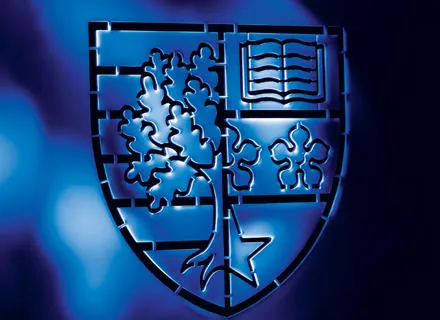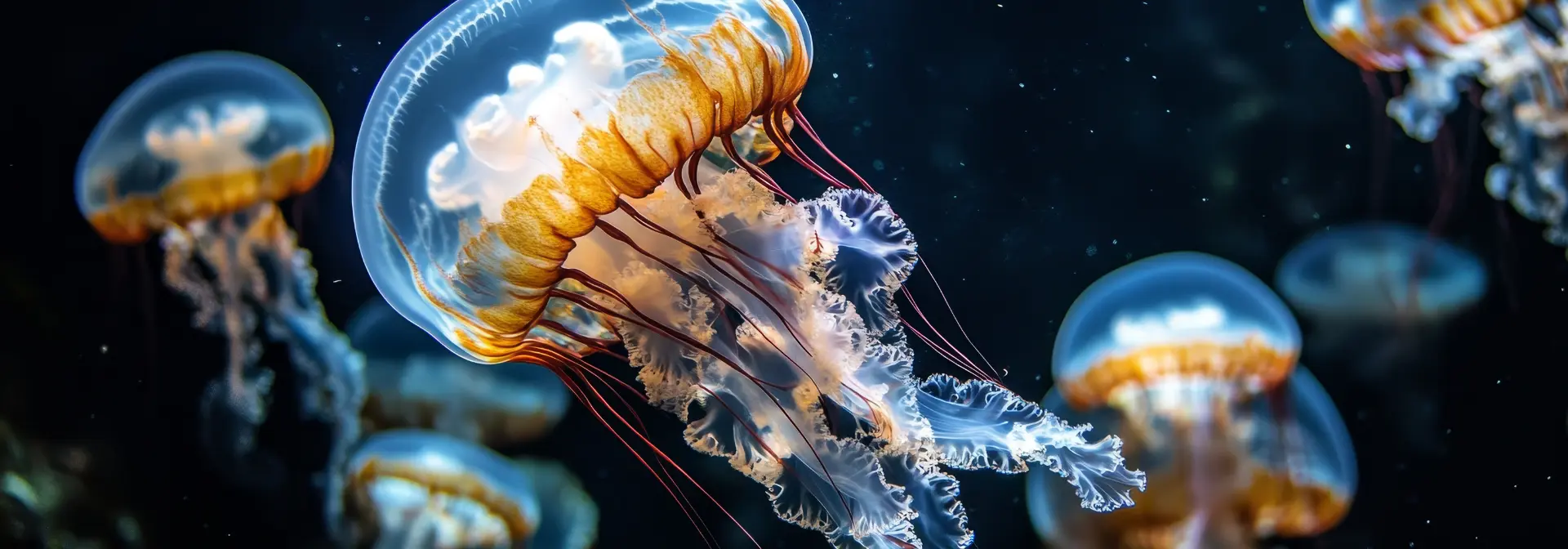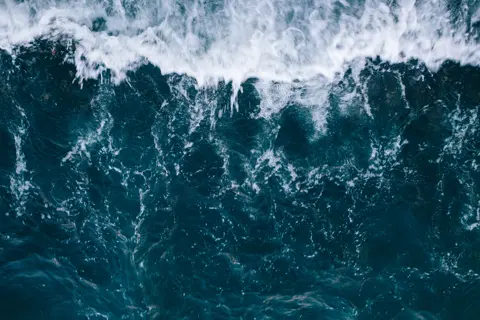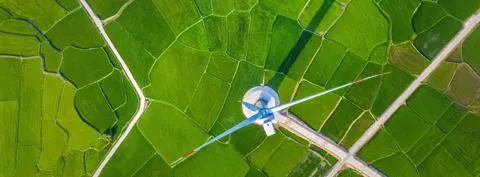Key information
Study International Marine Science at a global leader in marine, environmental, and climate research.
- Level
- Postgraduate
- Delivery type
- Self-paced
- Degree qualification
- MSc
- Location
- Online
- Duration
- Flexible
- Start date
- January, May, September
Programme overview
The online MSc International Marine Science at Heriot-Watt University equips you with the scientific expertise and practical insight to protect and sustainably manage our ocean resources. Integrating marine biology, oceanography, ecology, and environmental policy, the programme prepares you to address the challenges of biodiversity loss, climate change, and resource exploitation in the world’s seas and coastal systems.
You’ll gain the knowledge to understand, manage, and conserve marine environments while developing research, analytical, and leadership skills valued across consultancy, government, and NGOs.
Explore
Interdisciplinary marine science. Explore oceanography, biodiversity, conservation, and policy through a multidisciplinary lens.
Research
Research-led teaching. Learn from marine scientists at The Lyell Centre and Centre for Marine Biodiversity & Biotechnology.
Flexible
Complete your MSc fully online and in as little as two and a half years or pace your learning around your career and life.
The MSc International Marine Science prepares you to make a meaningful impact in global marine conservation and sustainability. You’ll build expertise in ecosystem management, environmental assessment, and sustainable resource use — applying your learning to real-world marine challenges across diverse contexts.
You’ll be taught by active researchers contributing to cutting-edge marine science and policy, ensuring your education remains globally relevant and rooted in current environmental priorities.
By studying this MSc Energy you will:
- Gain a critical understanding of marine ecosystems, climate processes, and conservation.
- Build advanced skills in research design, data evaluation, and scientific communication.
- Learn to apply environmental science to policy and sustainability frameworks.
- Develop transferable leadership, teamwork, and analytical capabilities.
- Prepare for global careers in marine management, consultancy, or environmental governance.
Start with just one course
We’ve made it simpler than ever for you to start your MSc. With performance-based admission, you only need to pay for and then pass your first course in Stage One to join the programme. No barriers. Get started today.
Enrol nowStudent experience
Heriot-Watt University is a global centre of excellence in marine, environmental, and climate science. Teaching on this MSc is delivered by active researchers within the Institute of Life and Earth Sciences, the Centre for Marine Biodiversity & Biotechnology, and The Lyell Centre, whose work spans deep-sea ecology, ocean conservation, geoscience, and environmental impact assessment.
Students also benefit from collaborations with respected partners including Marine Conservation International, the Scottish Environmental Protection Agency (SEPA), and 5 Oceans (5OES), providing opportunities to connect academic knowledge with applied practice.
Course content
You will undertake eight taught courses and a dissertation. You must first take exams in two courses of the degree, Climate Change and Environmental Processes. Based on the results from these courses you will continue on the degree at MSc or at PG Diploma level.
Core courses
- Applied Research Design and Analysis
- GIS for Marine and Environmental Scientists
- Oceanography
Optional courses
- Tropical and Coral Reefs: Monitoring and Management
- Environmental Evidence Synthesis
- Environmental Processes
- Energy Transition Lab
- Fisheries Sustainability and Gear Technology
- Introduction to Marine Planning
- Marine Renewable Energy Technology
- Marine Environmental Monitoring
- Renewable Technology Commercialisation (updated from September 2026)
- Science Communication and Engagement
- Marine Resources and Sustainability
- Diversity of Marine Organisms
- Transition Engineering – Achieving Zero Carbon InTIME
- Equity, Economics and Ecosystems under Pressure
- Marine Vertebrate Ecology and Conservation
- Practical Skills in Marine Surveying
- Marine Ecotoxicology
- Climate Change, Sustainability and Adaptation
Dissertation
- ILES Environment Dissertation
Study at your own pace
Our flexible online model allows you to study wherever you are in the world, while continuing to work and apply new knowledge in your role. Complete your MSc in as little as 2 and a half years or spread your studies over a longer period to suit your commitments.
Apply nowStudent testimonials

Robert's story
Graduate
I wanted flexibility more than anything, and by that, I mean the ability to continue working while studying. The course had to be able to fit into my lifestyle requirements, and that is exactly what it did as it allowed me to set and run my own programme of study.
Our teaching faculty

Fees and funding
Tuition is available on a pay-per-course basis.
| Per course | Dissertation | Full programme |
| £1,315* | £1,820 | £12,340 |
*Practical Skills in Marine Surveying and Tropical and Coral Reefs: Monitoring and Management are field courses and for these the fees are £1,710 and £2,330, respectively.
The tuition fees listed are applicable for 2026. Fees include one assessment attempt and may increase annually. Find out more about our tuition fees.
Funding opportunities
Pay Per Course
All our programmes offer the flexibility to pay course-by-course, allowing you to spread the cost of your tuition over the lifetime of your studies.
20% Alumni Discount
If you are a Heriot-Watt alumnus, you qualify for 20% off your programme fees. For more information on how to claim your alumni discount contact hwonlineapps@hw.ac.uk.
Employer Sponsorship
All our programmes offer the flexibility to pay course-by-course, allowing you to spread the cost of your tuition over the lifetime of your studies.
We're here to support you
If you have questions or need help with enrolment, complete our quick enquiry form and an Enrolment Advisor will be in touch.
Contact usEntry requirements
We have standard entry requirements for all of our courses that you will have to meet.
As part of the eight taught courses on the International Marine Science MSc, Heriot-Watt online you must first take exams in two courses of the programme, Climate Change and Environmental Processes. Based on the results from these courses you continue on the programme at MSc or at PG Diploma level.
Standard entry requirements
Applicants should be able to:
- Have a good undergraduate degree (minimum 2:2 honours or equivalent) in engineering or a relevant science discipline, or
- Demonstrate equivalent academic ability based on industrial experience or membership of a professional institution.
Alternative entry
Recognition of prior learning (RPL)
We are committed to providing study opportunities to applicants who have a wide range of prior experiences and recognise that some students entering our online programme will have completed prior academic study in subjects that align closely to this programme. Where this is the case, students may apply for Recognition of Prior Learning (RPL).
- Applying for RPL: We can only consider requests for RPL at the time of application to a course of study.
- Maximum credits: You may be eligible to be granted exemption for a maximum of 20 credits.
- Eligibility: The qualification may be valid for RPL only if gained with the last 5 years. Evidence will need to be provided.
- Cost breakdown: The overall cost of your programme will be determined by whether you are awarded RPL for a 20-credit course, in which case you will not be required to register for that course. Programme fees can be found under the fees and funding section.
For more information contact hwonlineapps@hw.ac.uk.
English language requirements
If your first language is not English, or your first degree was not taught in English, we'll need to see evidence of your English language ability.
The minimum English language requirement for entry to this programme is IELTS 6.0 (or equivalent) with no score lower than 5.5.
If you do not have IELTS 6.0, we offer a range of English language courses to help you meet the English language requirement for this programme prior to commencing your studies.
Why Heriot-Watt
We're the top university in Scotland for graduate outcomes and 5th in the UK, which means that more of our graduates are employed or in postgraduate education than any other institution in the country. We're also ranked 1st in Scotland for producing CEO and MDs (Novuna Business Cash Flow 2023).
We're Scotland's most international University, with five global campuses and a global community of 60,000 online students and alumni from over 158 countries. Our online programmes are designed and developed by the same faculty who teach on our global campuses - expert academics and leaders in research and innovation who work alongside industry to find solutions to some of the world's most pressing challenges.
Together, we shape your future.
Research
Research-led teaching. Learn from marine scientists at The Lyell Centre and Centre for Marine Biodiversity & Biotechnology.
Industry
Industry and conservation links. Collaborations with SEPA, Marine Conservation International, and 5 Oceans (5OES).
Flexible
Complete your MSc fully online and in as little as two and a half years or pace your learning around your career and life.
Employability
With our flexible model you can earn while you learn, build your CV, and apply new skills right away. Get free access to 500+ industry credentials and dedicated Careers Service support.
Potential career paths
- Marine Environmental Consultant
- Conservation Scientist
- Marine Policy Advisor
- Environmental Analyst
- Oceanographic Researcher
Your Online experience
Explore Heriot-Watt Online as a student
Speak to an Advisor
Our Enrolment Advisors are here to help you explore your options, entry routes, and how online study can fit around your life.
Book a call






